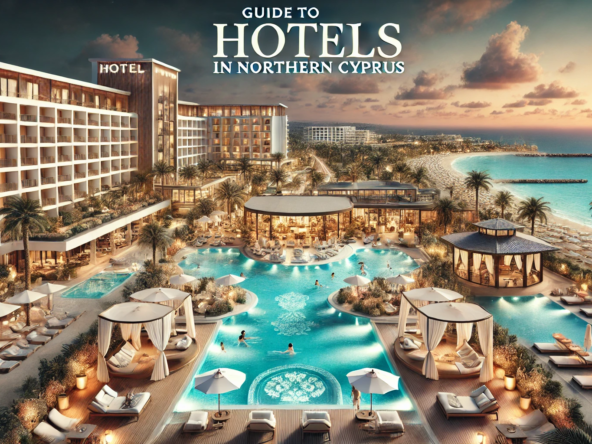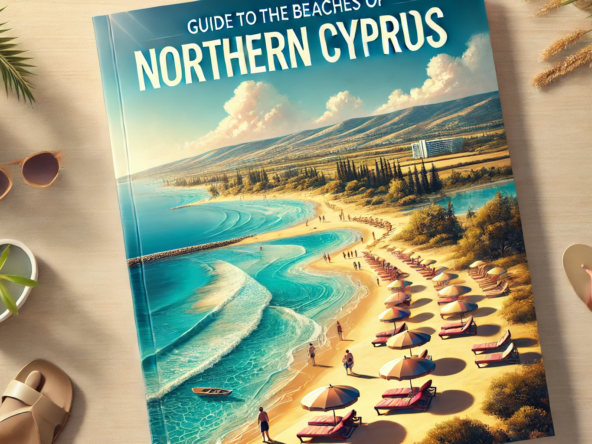Кипр — небольшой остров в восточной части Средиземного моря, который на протяжении многих веков был лакомым кусочком для самых разных держав. Сочетание удачного географического положения и богатого культурного наследия превратило его в место постоянных столкновений и компромиссов. Сегодня здесь существует уникальная ситуация: формально государство называется Республика Кипр, но фактически остров поделен на две части, а само разделение длится уже полвека. Как же так получилось и почему современный Кипрдо сих пор не может стать единым?
От «Великой Греции» к британской колонии
История острова уходит корнями в глубину веков. Из-за стратегически важного положения Кипр успели завоевать и Ассирия, и персы, и Византия, и крестоносцы. Однако два ключевых наследия для современности оставили греки и турки. Греки принесли православие и язык, а османское владычество в XV–XIX веках привело к тому, что значительную часть населения стали составлять мусульмане-турки. Со временем эти две общины — греческая и турецкая — окончательно оформились как отдельные народности со своими традициями, верой и языком.
В XIX веке слабевшая Османская империя передала управление Кипром Великобритании в обмен на военную поддержку против Российской империи. Так остров оказался под контролем Лондона. Позиция Великобритании была прагматичной: благодаря открытию Суэцкого канала торговые маршруты сильно сократились, и Кипрстановился важной военно-морской базой для защиты интересов британской короны. Однако греческие киприоты уже тогда не смирились с чужеземным управлением, начав бороться за идею «энозиса» — присоединения острова к Греции. Турецкие киприоты, в свою очередь, опасались оказаться в государстве, где они станут меньшинством без особых прав.
Путь к независимости и обострение конфликта
После Второй мировой войны колониальная система Британии начала стремительно рушиться. Кипр не стал исключением: растущее движение за независимость вылилось в восстание 1955 года, когда подпольная организация греческих киприотов ЭОКА начала борьбу против британских войск. Это повстанческое движение выступало за немедленное присоединение к Греции. Турецкая община острова, испугавшись за свою безопасность и будущее, создала ответную структуру — ТМТ (Турецкое движение сопротивления). Так внутренний конфликт перерос в вооруженное противостояние, которое длилось четыре года.
В итоге, чтобы не допустить полномасштабной войны между греческой и турецкой общинами, а также избежать конфликта между Грецией и Турцией (обе уже состояли в НАТО), мировые державы согласились на компромисс. В 1960 году Кипр стал независимой республикой с весьма сложной политической системой разделения власти: президент — грек, вице-президент — турок, а многие государственные институты формировались по квотам для двух общин. Великобритания, Греция и Турция получили статус «гарантов»: каждая из этих трех стран имела право вмешаться силой, если посчитает, что суверенитет или безопасность Кипра оказались под угрозой.
Однако новая республика не успела стать по-настоящему единой. Этнические и политические противоречия сохранились, а конфликт перешел в «тлеющий» формат. Любая провокация могла вновь разжечь военные действия. Так и случилось в декабре 1963 года (получившем название «Кровавое Рождество»), когда перестрелка между греческими полицейскими и турецкими жителями переросла в новые столкновения по всему острову.
Вторжение Турции и раскол острова
В 1974 году в самой Греции произошел военный переворот, к власти пришла хунта «черных полковников». Жесткие радикалы мечтали о «Великой Греции» и решили вновь раскрутить «энозис». На Кипре организовали заговор против президента-архиепископа Макариоса, и он был вынужден бежать из страны. Казалось, что осуществление греческого сценария — вопрос нескольких дней.
Но Турция, используя статус «гаранта», немедленно ввела войска на север Кипра, чтобы защитить турецкую общину и пресечь попытку насильственного присоединения к Греции. Турецкие силы быстро установили контроль над третью острова. Небольшой Кипр в одночасье оказался расколотым на две территории: южную, где сохранилась Республика Кипр, и северную, где вскоре была провозглашена Турецкая Республика Северного Кипра (ТРСК) во главе с харизматичным юристом Рауфом Денкташем. Новое образование признала лишь Анкара; мировое сообщество легитимности ТРСК не признает до сих пор.
В результате этих событий много киприотов с обеих сторон стало беженцами, люди теряли дома и имущество. Конфликт оказался «заморожен», но не был решен. Миротворческие силы ООН фактически провели «зеленую линию» — буферную зону, разделяющую юг и север.
Две стороны одного острова
После раскола Республика Кипр столкнулась с необходимостью полностью перестроить свою экономику: значительная часть сельскохозяйственных земель и важная инфраструктура остались под турецким контролем. Однако со временем греческий юг успешно нашел новые источники дохода — офшорные финансовые услуги, туризм и IT-индустрию. Именно лояльное налогообложение, благоприятный климат и ориентированность на привлечение высококвалифицированных специалистов сделали южную часть Кипра популярной среди программистов и аналитиков данных со всего мира.
На северном Кипре экономика, напротив, длительное время держалась на финансовой поддержке Турции. ТРСК до сих пор остается непризнанным государством, поэтому ей недоступны официальные международные рынки и прямое сотрудничество с Евросоюзом. Туристический сектор, ориентированный в основном на турецких посетителей, постепенно развивается, но по сравнению с югом здесь все еще сохраняется изоляция.
В 2004 году греческая часть острова вступила в Евросоюз. Тогда же предпринималась серьезная попытка объединить Кипр по «плану Аннана», но референдумы в обоих сообществах не пришли к единому решению. Турецкие киприоты тогда большей частью одобрили идею единого государства, зато греческие — проголосовали против. Так надежда на воссоединение вновь рассыпалась.
Современная жизнь и «удобный» конфликт
Несмотря на жесткие противоречия в прошлом, в последние годы граница между севером и югом значительно «размягчилась»: открыты несколько пропускных пунктов, и тысячи жителей регулярно пересекают буферную зону в обе стороны. Турецкие киприоты, имеющие право получить паспорт Республики Кипр, получают еще и все преимущества граждан ЕС. Греки с юга иногда ездят на север к стоматологам и в магазины, где цены ощутимо ниже. Серьезных проявлений насилия уже давно нет, а многие представители молодого поколения обеих общин смотрят скорее в будущее, чем в прошлое.
Такой долговечный раскол многие эксперты называют «удобным конфликтом»: напряженность исчезла, политики регулярно говорят о мирном урегулировании, но никто не готов предпринять радикальные шаги, чтобы окончательно решить проблему. Странами-гарантами формально остаются Великобритания, Греция и Турция, но каждая из них руководствуется собственными интересами. Попытки провести новый референдум об объединении раз за разом заходят в тупик, а у жителей Кипра уже сформировалась относительно стабильная жизнь по обе стороны «зеленой линии».
Дополнительная информация для граждан РФ
Если вы являетесь гражданином Российской Федерации и планируете поездку на Кипр, вы можете ознакомиться с официальной информацией по вопросам въезда и выезда на сайте Посольства России на Кипре (cyprus.mid.ru). Там вы найдете подробные разъяснения о визовых и миграционных нюансах, а также рекомендации по пребыванию на острове.
Вопросы и ответы
Вопрос 1. Какие документы требуются, чтобы попасть в Республику Кипр?
Ответ:
- Для въезда необходимо иметь национальную кипрскую визу или действующую многократную шенгенскую визу.
- Перед поездкой обязательно проверьте актуальные требования на сайте Посольства России на Кипре и на официальном ресурсе Республики Кипр.
Вопрос 2. Как лучше добраться до Северного Кипра?
Ответ:
Существует несколько способов:
- Авиасообщение:
- Прямой рейс в аэропорт Эрджан из городов Турции.
- (Прямых рейсов из других стран нет.)
- Паром:
- Из порта Ташуджу в Турции.
- Через Республику Кипр:
- Прилет в аэропорты Ларнаки или Пафоса с последующим пересечением границы между южной и северной частями острова.
Важно: Перед поездкой уточняйте действующие правила, так как они могут меняться. Хотя официально пересечение «зеленой линии» не одобряется, на практике обычно проблем не возникает.
Вопрос 3. Нужно ли получать отдельную визу для Северного Кипра?
Ответ:
- Для граждан большинства стран (включая Россия, Беларусь и Казахстан) отдельная виза не требуется – на границе ставят туристический штамп, который выполняет функцию визы.
- Исключение: Гражданам Сирии, Армении и Нигерии необходимо заранее оформить визу в посольстве или консульстве ТРСК за границей.
Вопрос 4. Могу ли я пересекать границу между Республикой Кипр и Северным Кипром?
Ответ:
Да, граница открыта в нескольких контрольных пунктах (КПП), где можно свободно перемещаться при наличии действующих документов.
Примечание:
- Обязательно уточняйте актуальные правила, в том числе касающиеся карантинных мер, если они действуют.
- Подробнее про КПП можно узнать в этой статье.
Вопрос 5. Какие преимущества дает паспорт Республики Кипр?
Ответ:
- Обладатель паспорта Республикы Кипр становится гражданином ЕС, что означает:
- Свободу передвижения по странам Евросоюза.
- Право работать и учиться в Европе.
- Использование всех преимуществ резидента ЕС для развития бизнеса и карьеры.
- Это особенно важно для тех, кто планирует долгосрочное пребывание в Европе.




